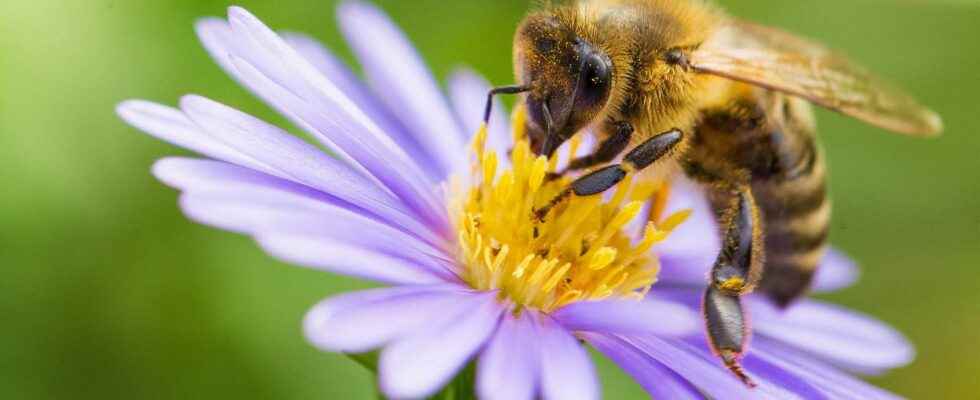Whether you have a garden, a balcony, a terrace or a rim of window, participate in the flowering of your outdoor space to feed pollinating insects including bees. The decline in colonies is a real scourge. Be a responsible gardener by fighting for the backup death species who suffer from climate change and not always reasoned human activities.
Bees in danger, a real awareness
From June 10 to 19, 2022, Val’hor, which represents several thousand plant professionals throughout France, is organizing the 6and edition of the Flower week for bees. Florists, nurserymen, growers, horticulturists, landscapers, garden centers can participate in this action and promote a wide choice of plants appreciated by pollinators and thus encourage you to grow them to feed them. It is also an opportunity to raise awareness, alert and inform the general public about the future of bees.
From May 20 to June 21, 2022, the French Apidology Observatory (OFA) is organizing the campaign flowers for bees which is aimed at every citizen and which offers to sow seeds to bloom the smallest corner of greenery – sachets that you will find at participating partners.
In nature, a decrease in the food resources necessary for bees has been observed for several years and the phenomenon is not improving. Here are some of the reasons that prevent colonies of bees and other pollinators from growing sustainably:
- the use of pesticides ;
- the deforestation and the deletion of hedges ;
- the abuse of monocultures ;
- I’urbanization natural areas;
- climate change with a shift in seasons ;
- repeated mowing of green spaces;
- the lack of wild grass areas and meadows ;
- the appearance of new virus Where parasites (the asian hornetthe Varroa).
The list is long. By buying and growing plants that attract pollinating insects, you will act against this scourge, offer them pollen and nectar and participate, in your own way, in the save the bees.
Pollinating insects, allies of the gardener
The role of wild and honeybees is essential in our ecosystem. About 80% of plant species are directly dependent on the pollination by insects. Bees and Foragers (bumblebees, wasps, beetles, butterflies, etc.) promote the pollination of cultivated and wild plants. The tomatoes, peppers, melons, zucchini, watermelons, eggplant, apricot trees, apple trees, pear trees, etc are pollinated by bees in order to produce an abundance of beautiful and good fruits and vegetables. Cultivate a multitude of plants to keep some biodiversity in your environment to ensure flowering and harvest.
Sow plants bees (nectariferous) who will provide honeydew on the trees, nectar and pollen on the flowers. Mix the bulbsperennials, annuals, plants aromaticthe trees fruit trees, climbing plants, shrubs… in order to feed them all year round by diversifying the sources of pollen in your garden, on your balconyyour Terrace or your windowsill.
In June, plant sales outlets will offer a very wide range of bee plants to cultivate to attract bees and other pollinating insects. Let yourself be tempted by this multiple choice of plants and seeds.
In addition to flowering your outdoor space, arrange corners with shelters purchased or constructed from branches, hollow stems or drilled logs to provide shelter for many pollinating insects and other auxiliaries. Also provide a saucer of water for the bees to take breaks and rehydrate. These actions may seem simple, but done throughout the year they will help make your green space attractive to bees.
Support your independent scientific media: discover our subscription formulas!
4 good reasons to subscribe to Futura on Patreon:
- A site without any advertising from 3.29 euros per month.
- It is without commitment.
- Access to priority content, in preview, just for you.
- You support our business in the best possible way. A real motivation for us!
Interested in what you just read?
